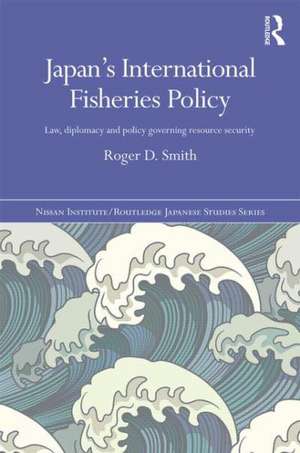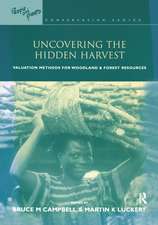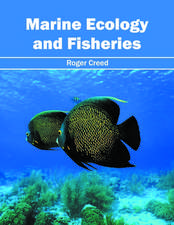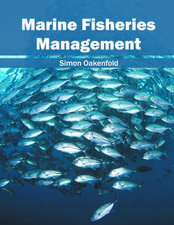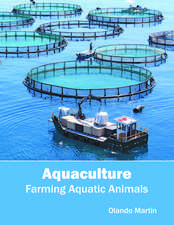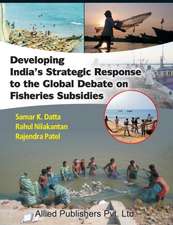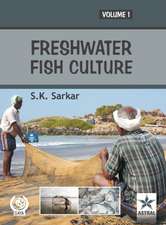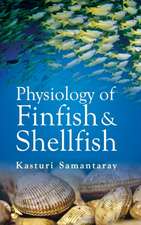Japan's International Fisheries Policy: Law, Diplomacy and Politics Governing Resource Security: Nissan Institute/Routledge Japanese Studies
Autor Roger D. Smithen Limba Engleză Hardback – 21 aug 2014
This book explores the overarching rationale that motivated Japanese international fisheries policy throughout the post-war period until today, highlighting the importance of international fisheries to Japan and the stature this resource has occupied as a national interest. It provides a comparative view of Japanese foreign policy at various ocean conferences, treaty negotiations, bilateral diplomatic initiatives and other maritime relations that constitute ocean policy over half a century, and investigates the domestic constituents of national policy. Roger Smith argues that the rationale for international fisheries policy may be best viewed as deriving from Japan’s unique defence strategy for its national interests: comprehensive security. Encompassing non-military elements and most importantly defence of economic interests, Japan’s international fisheries policy provides an interesting case study of how comprehensive security is conceptualised and carried out.
Taking a broad view of Japan’s international fisheries policies from 1945 to the present, this book highlights the key trends in policy motives and means throughout the post-war period. As such, it will be of great interest to students and scholars of Japanese studies, international and environmental law, resource management and international relations, as well as to policy makers working in the field.
| Toate formatele și edițiile | Preț | Express |
|---|---|---|
| Paperback (1) | 322.98 lei 6-8 săpt. | |
| Taylor & Francis – 11 aug 2017 | 322.98 lei 6-8 săpt. | |
| Hardback (1) | 820.32 lei 6-8 săpt. | |
| Taylor & Francis – 21 aug 2014 | 820.32 lei 6-8 săpt. |
Din seria Nissan Institute/Routledge Japanese Studies
-
 Preț: 286.69 lei
Preț: 286.69 lei -
 Preț: 310.80 lei
Preț: 310.80 lei - 9%
 Preț: 1003.95 lei
Preț: 1003.95 lei -
 Preț: 289.04 lei
Preț: 289.04 lei - 25%
 Preț: 852.53 lei
Preț: 852.53 lei -
 Preț: 495.94 lei
Preț: 495.94 lei -
 Preț: 486.42 lei
Preț: 486.42 lei -
 Preț: 271.61 lei
Preț: 271.61 lei -
 Preț: 420.08 lei
Preț: 420.08 lei - 18%
 Preț: 1057.40 lei
Preț: 1057.40 lei -
 Preț: 465.49 lei
Preț: 465.49 lei -
 Preț: 414.39 lei
Preț: 414.39 lei - 18%
 Preț: 1003.30 lei
Preț: 1003.30 lei - 18%
 Preț: 1056.80 lei
Preț: 1056.80 lei -
 Preț: 465.69 lei
Preț: 465.69 lei -
 Preț: 415.24 lei
Preț: 415.24 lei -
 Preț: 485.40 lei
Preț: 485.40 lei - 12%
 Preț: 299.87 lei
Preț: 299.87 lei - 18%
 Preț: 1061.57 lei
Preț: 1061.57 lei - 18%
 Preț: 1105.56 lei
Preț: 1105.56 lei - 18%
 Preț: 1058.43 lei
Preț: 1058.43 lei - 18%
 Preț: 1058.79 lei
Preț: 1058.79 lei - 18%
 Preț: 1168.76 lei
Preț: 1168.76 lei - 15%
 Preț: 538.45 lei
Preț: 538.45 lei -
 Preț: 415.67 lei
Preț: 415.67 lei - 26%
 Preț: 820.32 lei
Preț: 820.32 lei - 15%
 Preț: 511.27 lei
Preț: 511.27 lei -
 Preț: 492.11 lei
Preț: 492.11 lei - 18%
 Preț: 1271.47 lei
Preț: 1271.47 lei -
 Preț: 438.47 lei
Preț: 438.47 lei -
 Preț: 451.16 lei
Preț: 451.16 lei - 21%
 Preț: 342.12 lei
Preț: 342.12 lei -
 Preț: 408.54 lei
Preț: 408.54 lei - 18%
 Preț: 948.98 lei
Preț: 948.98 lei -
 Preț: 412.37 lei
Preț: 412.37 lei - 25%
 Preț: 1001.60 lei
Preț: 1001.60 lei - 18%
 Preț: 1061.57 lei
Preț: 1061.57 lei - 26%
 Preț: 849.77 lei
Preț: 849.77 lei - 26%
 Preț: 820.73 lei
Preț: 820.73 lei - 18%
 Preț: 1057.05 lei
Preț: 1057.05 lei - 18%
 Preț: 1390.04 lei
Preț: 1390.04 lei - 18%
 Preț: 777.70 lei
Preț: 777.70 lei
Preț: 820.32 lei
Preț vechi: 1103.01 lei
-26% Nou
Puncte Express: 1230
Preț estimativ în valută:
156.98€ • 162.97$ • 130.90£
156.98€ • 162.97$ • 130.90£
Carte tipărită la comandă
Livrare economică 22 martie-05 aprilie
Preluare comenzi: 021 569.72.76
Specificații
ISBN-13: 9781138775237
ISBN-10: 1138775231
Pagini: 234
Ilustrații: 15 black & white illustrations, 3 black & white tables, 12 black & white line drawings
Dimensiuni: 156 x 234 x 18 mm
Greutate: 0.48 kg
Ediția:1
Editura: Taylor & Francis
Colecția Routledge
Seria Nissan Institute/Routledge Japanese Studies
Locul publicării:Oxford, United Kingdom
ISBN-10: 1138775231
Pagini: 234
Ilustrații: 15 black & white illustrations, 3 black & white tables, 12 black & white line drawings
Dimensiuni: 156 x 234 x 18 mm
Greutate: 0.48 kg
Ediția:1
Editura: Taylor & Francis
Colecția Routledge
Seria Nissan Institute/Routledge Japanese Studies
Locul publicării:Oxford, United Kingdom
Public țintă
Postgraduate and UndergraduateCuprins
Introduction: International Law, Japanese Domestic Politics and Ocean Diplomacy 1. Mare Liberum and the Prewar Origins of Food Security in Japan 2. Ocean Regimes and Food System Planning under SCAP Occupation 3. Negotiating a Regional Fisheries System in North Pacific 4. The Worldwide Enclosure Movement and Restrictive Regime Claims on Fisheries 5. The Precautionary Principle, EEZs and Fisheries Enforcement in the Pacific 6. Comprehensive Security as National Policy and Japan’s New Fisheries Strategy 7. Comprehensive Security in Action: International Fisheries Policy 8. Epistemic Norm Formation and Japanese Whaling Policy 9. Food Security and Self Sufficiency Today 10. Conclusion
Notă biografică
Roger D. Smith is Associate Professor at the University of Kyushu, Japan, and Adjunct Associate Professor at the University of Western Sydney, Australia.
Recenzii
"Japan’s International Fisheries Policy provides a useful overview of the topic and fills a lacuna in the literature between studies of Japanese fisheries and food security policies more generally, studies of Japan’s role in specific international fisheries, and the literature on international fisheries politics that takes Japanese policy as a given rather than examining its development over time."
J. Samuel Barkin, University of Massachusetts Boston, Journal of Japanese Studies
"Japan’s International Fisheries Policy is a useful book for scholars and students of Japan’s foreign policy, as well as of its domestic politics relating to food and other marine resources over the decades since World War II. It is also a good reference work for people interested in international ocean governance, where Japan is a key player, as a fishing state, as a major supporter of multilateral measures to promote food security through fisheries, and as a big bilateral aid donor for fisheries in developing countries."
Kate Barclay, Pacific Affairs: Volume 89, No. 3 – September 2016
J. Samuel Barkin, University of Massachusetts Boston, Journal of Japanese Studies
"Japan’s International Fisheries Policy is a useful book for scholars and students of Japan’s foreign policy, as well as of its domestic politics relating to food and other marine resources over the decades since World War II. It is also a good reference work for people interested in international ocean governance, where Japan is a key player, as a fishing state, as a major supporter of multilateral measures to promote food security through fisheries, and as a big bilateral aid donor for fisheries in developing countries."
Kate Barclay, Pacific Affairs: Volume 89, No. 3 – September 2016
Descriere
This book explores the overarching rationale that motivated Japanese international fisheries policy throughout the post-war period until today, highlighting the importance of international fisheries to Japan and the stature this resource has occupied as a national interest. It provides a comparative view of Japanese foreign policy at various ocean conferences, treaty negotiations, bilateral diplomatic initiatives and other maritime relations that constitute ocean policy over half a century, and investigates the domestic constituents of national policy.
